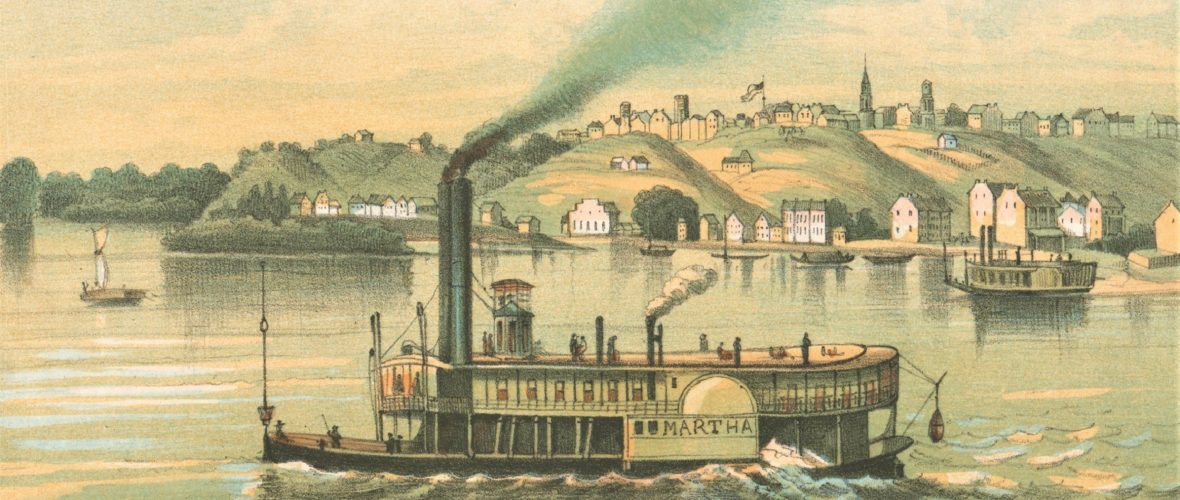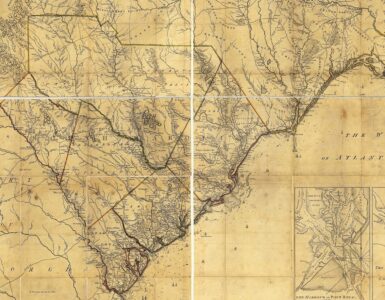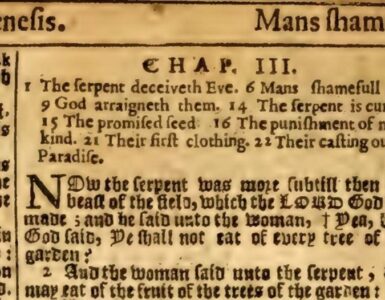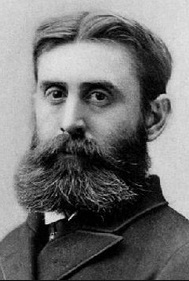 It may seem unlikely but seminary professor B.B. Warfield has one thing in common with America’s humorist, social commentator, and author, Samuel Langhorne Clemens, better known as Mark Twain. The familiar quip from Clemens, “The rumors of my death are greatly exaggerated,” has been quoted correctly and incorrectly over the years. A quick search of the Internet will show that it continues to be misused. The quote was first published in the June 2, 1897 issue of the New York Journal. Twain made the statement in a letter to Frank M. White who was a correspondent for the Journal. It had been previously published in a periodical that Twain was dead and he wanted to let readers know he was still alive and kicking. The exact way the line is written in the letter is, “The report of my death was an exaggeration.” Twain’s cousin, James Ross Clemens, was seriously ill at the time and was somehow confused with Twain. By the time Twain wrote to White in order to clear up the matter, James had fully recovered.
It may seem unlikely but seminary professor B.B. Warfield has one thing in common with America’s humorist, social commentator, and author, Samuel Langhorne Clemens, better known as Mark Twain. The familiar quip from Clemens, “The rumors of my death are greatly exaggerated,” has been quoted correctly and incorrectly over the years. A quick search of the Internet will show that it continues to be misused. The quote was first published in the June 2, 1897 issue of the New York Journal. Twain made the statement in a letter to Frank M. White who was a correspondent for the Journal. It had been previously published in a periodical that Twain was dead and he wanted to let readers know he was still alive and kicking. The exact way the line is written in the letter is, “The report of my death was an exaggeration.” Twain’s cousin, James Ross Clemens, was seriously ill at the time and was somehow confused with Twain. By the time Twain wrote to White in order to clear up the matter, James had fully recovered.
The two transcriptions below show that Warfield suffered, like Clemens, the surprise of reading of his own death when he was mentioned as an authoritative source of information for court actions stemming from the merger of the Presbyterian Church in the United States of America (PCUSA) and the Cumberland Presbyterian Church. In 1906, part of the Cumberland Church reunited with the PCUSA from which it separated in 1810 over differences including the Westminster Confession, Calvinism, ministerial education requirements, and revivalism. A disagreement over property arose between those Cumberland congregations that participated in the union and those that chose not to. Congregations continuing as the Cumberland Church believed their property should remain with them because they were holding to the historic views of their denomination and they believed that merging with the Presbyterians compromised their distinctive doctrines. As shown in the transcriptions that follow, the key evidence supporting the congregations continuing in the Cumberland Church came from B. B. Warfield. Though not mentioned in the first excerpt, the court was in Tennessee, and the Missouri court is the source of the second excerpt. The Presbyterian Banner is the source for both pieces.
Justice Neil, a Southern Presbyterian, in rendering the decision in the Cumberland union case, went into an examination of the agreement of the two confessions of faith and decided there is not sufficient agreement to justify union, although both the Churches officially declared there is such agreement. In sustaining his position he made the following remarkable statement: “We are of opinion that the effect of the Declaratory Statement is correctly set forth in an article written by Rev. Benjamin B. Warfield, D.D., LL.D., of Princeton Theological Seminary, now deceased, who was a distinguished minister and theologian of the Presbyterian Church in the United States of America.” We know Dr. Warfield is not “now deceased,” for there is an article in the last number of The Princeton Theological Review, which has just arrived on our table, signed with his name and containing more than one hundred pages: by which token he is very much alive. (“Now Deceased,” 95:46, April 22, 1909, p. 1491)
The Supreme Court of Missouri has rendered an adverse decision to the Cumberland union and declared the property involved belongs to the anti-unionists. If it had simply rendered its decision and said nothing it might have retained our respect; but when it began to give reasons it exposed its state of mind and gave good ground for laughter.
In general, the reasoning of the court’s opinion follows that of the parallel case in Tennessee; in fact, so closely that it copied the very mistakes of that decision, for it again declares Dr. Warfield is “now deceased”; and thus twice within a few months this distinguished divine has been judicially pronounced dead. We think, however, in spite of these decisions that the report of Dr. Warfield’s death has been, in Mark Twain’s phrase, “greatly exaggerated.”
But perhaps the most egregious mistake in the decision is its contention that while the ministers and elders of the Presbyterian Church “are required to assent only to the system of doctrine” there is “no such provision” for “the unofficial members of the Church and the applicants for admission.” “It would appear from this,” says the learned court, “that we have a Confession of Faith that can be accepted in part by a class, but must be accepted as a whole by another class. We confess that we do not know whether this is usual or unusual.” It was well for the court to confess ignorance, but its confession does not go far enough. It simply did not know what it was talking about. Almost every child in the Presbyterian Church knows that its private members and applicants for admission are not required to accept its Confession of Faith; but there are judges assuming and asserting the contrary of this fact and yet presuming to decide that the Confessions of the Cumberland and the Presbyterian Churches did not agree, and thus nullifying the union on grounds which, according to the Supreme Court of the United States, were outside of their jurisdiction. (“The Supreme Court of Missouri,” 96:5, July 8, 1909, p. 150)
When B. B. Warfield was composing his article, “The Proposed Union with the Cumberland Presbyterians,” 1904, the key points of his presentation were the incompatibility of the confessions of the two denominations and the failure of the Declaratory Statement to make the Westminster 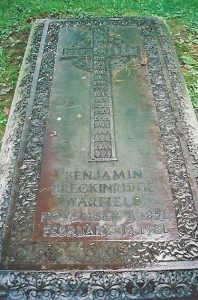 Confession compatible with Cumberland Church doctrine. Warfield and a Cumberland author, W. T. Dale, coming at the issues from both sides agreed in their analyses that the confessions were not alike, or even similar. The Cumberland confession was Arminian; the PCUSA’s confession was Calvinist. Some in the Cumberland Church recognized that if they united with the PCUSA they would be denying some of their historic doctrine, especially Arminianism, thus they did not join in the union. Those holding to the traditional Cumberland system found the courts of the civil magistrates friendly to Warfield’s observations regarding the union. Who would have thought that the continuing Cumberland membership would ever benefit from their arch doctrinal enemy, the Princeton Seminary professor and “High Calvinist,” B. B. Warfield?
Confession compatible with Cumberland Church doctrine. Warfield and a Cumberland author, W. T. Dale, coming at the issues from both sides agreed in their analyses that the confessions were not alike, or even similar. The Cumberland confession was Arminian; the PCUSA’s confession was Calvinist. Some in the Cumberland Church recognized that if they united with the PCUSA they would be denying some of their historic doctrine, especially Arminianism, thus they did not join in the union. Those holding to the traditional Cumberland system found the courts of the civil magistrates friendly to Warfield’s observations regarding the union. Who would have thought that the continuing Cumberland membership would ever benefit from their arch doctrinal enemy, the Princeton Seminary professor and “High Calvinist,” B. B. Warfield?
As Scripture reminds us, “It is appointed unto men once to die” (Hebrews 9:27), and Dr. Warfield passed away February 16, 1921, having survived Mark Twain by nearly eleven years. Note that despite premature tolling of the bell for both Warfield and Clemens, one earthly death is all that is required.
Barry Waugh
Notes— The header was added for the current posting; it shows a river boat circa 1857 at Quincy, Illinois, as in the digital collection of the NY Public Library. Much of Mark Twain’s fiction includes river boats as in Life on the Mississippi, 1883. “High Calvinist” is borrowed from, G. P. D., “The Last of the High Calvinists,” The Presbyterian 91:10, March 10, 1921, pages 9-10, which was a memorial for Warfield. Dr. Warfield’s article on the Cumberland union was published in The Presbyterian and Reformed Review, April 1904, and in a pamphlet, The Proposed Union with the Cumberland Presbyterians, Philadelphia: McCalla and Co., 1904; the latter was read for this post. For 200 pages of material on the differences between the Cumberland Church and the PCUSA from the Cumberland perspective, see Dale’s, The Difference in Creedal Statement Between the Confessions of Faith of the Presbyterian Church, U.S.A., and the Cumberland Presbyterian Church Accompanied by an Earnest Plea for the Perpetuation of the Cumberland Presbyterian Church with its “Whosoever Will” Doctrines, Franklin, Tennessee: W. T. Dale, 1905. The quote from “The Supreme Court of Missouri” article was pointed out to me by Wayne Sparkman, PCA Historical Center. I followed up and located the first quote regarding “Now Deceased.” Information on Mark Twain’s quip is from the Oxford Dictionary of Quotations and a digital copy of the page of Twain’s letter to White can be located with some Internet searching. The photograph of Warfield’s grave was taken by the author of this site.


